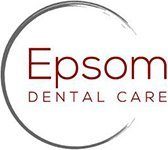Cracked or Broken Tooth? Don’t Panic! Here’s What to Do

Even the most composed person may experience shock when they discover a cracked or broken tooth.
A damaged tooth can be painful and concerning, whether due to an unexpected accident, biting down on something hard, or even regular wear and tear.
However, it’s essential not to panic. With the proper knowledge and immediate action, you can effectively manage the situation and ensure the best possible outcome for your dental health.
This comprehensive guide will explore everything you need about a cracked or broken tooth, including the causes, symptoms, treatment options, and preventive measures.
Understanding a Cracked or Broken Tooth
To effectively address a cracked or broken tooth, it’s crucial to understand what causes these issues in the first place.
Tooth cracks or fractures can arise from several causes, such as:
- Trauma: Teeth can sustain tremendous stress from accidents, falls, or sports-related injuries that result in fractures or cracks.
- Biting down on hard objects: Chewing hard substances like ice, nuts, or unpopped popcorn kernels can weaken tooth enamel and result in cracks or fractures.
- Tooth decay: Untreated cavities can weaken the tooth’s structure, making it more susceptible to cracking or breaking.
- Teeth grinding (bruxism): Continuous teeth grinding, mainly while you’re sleeping, can put too much pressure on your teeth over time, which might cause fractures or cracks.
- Temperature changes: Sudden temperature changes, such as consuming hot food or beverages followed by cold ones, can result in the teeth expanding and contracting, potentially resulting in cracks.
Recognising the Symptoms
Identifying the symptoms of a cracked or broken tooth is essential for prompt intervention and treatment.
Common signs and symptoms may include:
- Discomfort or pain when biting or chewing.
- Sensitivity to hot or cold temperatures, especially in the affected tooth.
- Swelling or inflammation around the gums.
- Visible cracks or fractures in the tooth may be detectable with the naked eye or through dental imaging.
- Sharp or jagged edges on the broken tooth.
- Difficulty in adequately closing the mouth or discomfort when applying pressure to the affected tooth.
What to Do If You Have a Cracked or Broken Tooth
If you think you may have a cracked or broken tooth, you must act immediately to prevent further damage and ease discomfort.
Here are the steps you should follow:
- Use warm water to rinse your mouth to clear the area and remove any particles.
- To control bleeding, gently press the area with a clean gauze or towel.
- Take over-the-counter pain medicine such as ibuprofen for pain management and inflammation reduction.
- Avoid chewing on the side of the mouth with the affected tooth to prevent further damage.
- If a large piece of the tooth has broken off, try to save it and bring it with you to the dentist.
- Contact your dentist or emergency dental clinic immediately for an assessment and treatment appointment.
Treatment Options for Cracked or Broken Tooth
The appropriate treatment for a cracked or broken tooth will depend on the extent and severity of the damage.
Standard treatment options may include:
- Dental bonding: For minor cracks or chips, your dentist may use dental bonding material to repair the tooth and restore its appearance.
- Dental crown: If the damage is more extensive, a dental crown might be advised to cover and protect the remaining tooth structure.
- Root canal therapy: If the break spreads into the tooth’s pulp, causing infection or inflammation, a root canal treatment could be required to eliminate damaged tissue and restore the tooth’s health.
- Tooth extraction: If the tooth is in critical condition and cannot be saved, extraction may be the only option to prevent further complications and preserve oral health.
- Dental implant or bridge: When a tooth is extracted, function and appearance can be restored with a bridge or dental implant in its place.
Preventing a Cracked or Broken Tooth
While some causes of a cracked or broken tooth may be unavoidable, there are steps you can take to reduce your risk:
- Avoid chewing on hard objects like ice, nuts, or hard candies.
- To prevent damage to your teeth when playing sports, use a mouthguard.
- Brush and floss frequently to avoid tooth decay by maintaining proper oral hygiene.
- Seek treatment for teeth grinding (bruxism) if necessary, such as wearing a nightguard.
- Plan routine cleanings and dental check-ups to catch problems early and treat them.
A cracked or broken tooth can be distressing, but it’s essential not to panic. By understanding the causes, recognising the symptoms, and taking prompt action, you can effectively manage the situation and preserve your dental health.
Remember to contact your dentist as soon as possible for evaluation and treatment. With the right maintenance and precautions, you can keep the health and beauty of your smile for many years to come.
Cracked or Broken Tooth Management in Applecross
If you’re experiencing a cracked or broken tooth, don’t delay—schedule an appointment with your dentist today.
Taking quick action can aid in preventing further damage and ensuring the best possible result for your dental health.
At Epsom Dental Care Applecross, we will work closely with you to provide immediate and professional care to help you preserve your smile.
Same-Day Dental Emergency Appointment Available in Applecross
Call us at (08) 9316 0555 or book your appointment online.
Don’t wait until it’s too late—contact your trusted dental professional and get the necessary care. Your smile will thank you for it!
Visit us at 729 Canning Hwy in Applecross.
